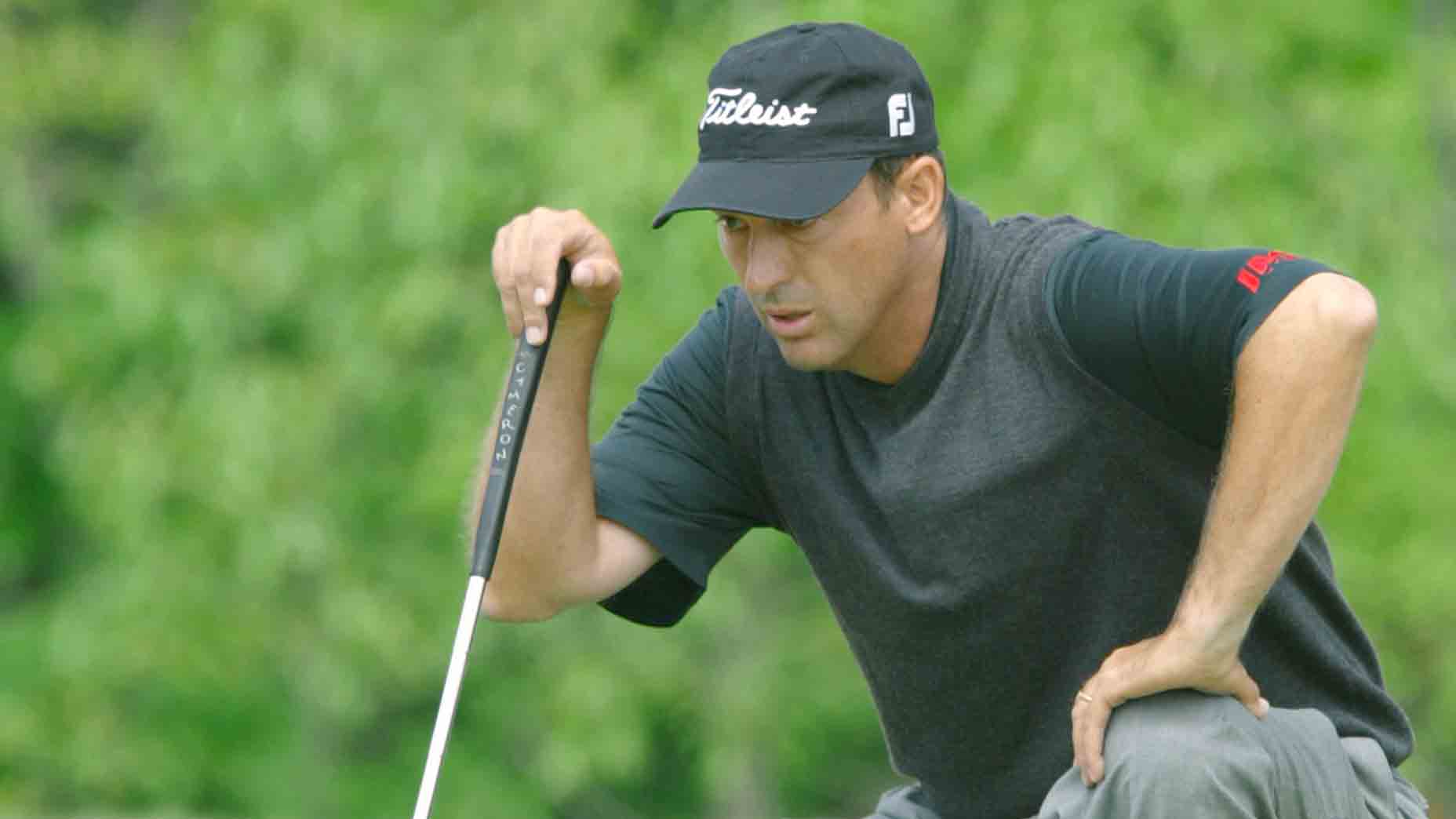There’s traditional.
And cross-hand.
And claw.
And wrist anchor.
And on and on. Putting grips are bountiful, and each has its merit.
But Stan Utley wants you to know about his, too.
Utley? He’s an authority. A GOLF Magazine Top 100 Teacher. One-time pro. Short-game whisperer. Charles Barkley swing-fixer. That’s a resume. And his grip, he says on a video he posted to social media this week, puts a putting stroke on plane, which should be the end game of any grip.
It’s the reverse overlap, and you can watch Utley expound on its virtues in his video here. Below are a few words.
In the video, Utley offered this instruction:
— “I’m trying to get the lifeline in my left hand to go right down the left-center of my grip.” (Confused at where your lifeline is? This website here has a picture.)
— “The left thumb is going right on top of the grip.”
— “My forearm, my wrist and my hand are all on the shaft plane.”
Now to the right hand.
— “I’m going to put my right-hand lifeline on the last knuckle of my (left) middle finger so that it sits square to the face of the club, but it matches up with the left hand.”
— “I put all my fingers on the grip except my left-index finger.”
The result?
“You can see that now my forearms are level and in line with the shaft when I tilt over to the ball,” Utley said. “That makes it easy to swing on plane.”
Some notes. This reporter, a 14-handicap who putts cross-handed, tried it after watching the video a few times, and there was both comfort and stability. It’s worth a go.
That said, if you’re satisfied with your current grip, don’t stray from it.
Notably, too, GOLF.com also wrote about the reverse-overlap in 2019, and that story can be read here, or below.
***
I was having a conversation with a friend of mine the other day when — shocker — the subject of golf came up. Putting, specifically. We were talking about different types of putting grips, and I mentioned that I’ve been using a textbook, conventional, reverse-overlap grip for basically my entire life.
“What’s that?” he said.
I was taken aback, so I asked a few others and the response was the same. I even put the question to Twitter and the results told a similar story. Turns out I’d developed a bit of a blind spot. Despite it being the most commonly used putting grip on Tour, the reverse-overlap grip isn’t something that all too many golfers know about.
So, what is the reverse overlap? It’s the conventionally standard grip used for putting that is as it sounds: reversing the overlap grip that so many golfers use on their full swing. Rather than your pinky finger resting just on top of your index finger, it’s your index finger that moves to overlap your pinky and index fingers.
What’s the point of this? Well, the theory is that the interlocking and overlapping grips are designed, above all else, to help the hands work together to release the club as you swing. The reverse-overlap grip helps prevent the potential rolling of the hands and keeps the grip more in each palm for increased control.
It’s become the conventional standard, mostly because it’s been around for so long, and it’s used by pros far and wide, from Tiger Woods to Rory McIlroy and everyone in between.
If you’re reading this and now wondering if you should switch to a reverse-overlap putting grip, I wouldn’t lose sleep over it — especially if you’re already a good putter. There’s lots of variance in putting technique because it’s a deceptively simple art. When it comes to selecting a certain grip, abide by David Orr’s golden rule: The number one thing they need to decide is which grip style makes them feel the most coordinated.
